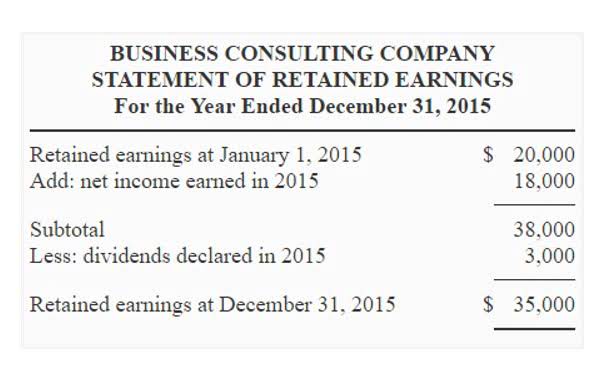
While the pass rates may vary, it’s essential to dedicate ample time and effort to each section of the exam. You should also spend more time on practice questions for this part. So when you’re picking your enrolled agent exam study material, make sure you chose a review course with plenty of sample EA questions. If you’re a tax preparer who would like to represent your clients before the IRS, you can benefit from becoming an enrolled agent. You can also use the IRS EA designation to improve your marketability, differentiate yourself from other tax return preparers, and become more knowledgeable about tax laws. An enrolled agent is a person who has earned the privilege of representing taxpayers before the Internal Revenue Service.
Example of an EA exam question:

EAs have to complete 72 hours of continuing education every three years. The same as CPAs and attorneys, enrolled agents have unlimited practice rights and what types of tax matters they can handle, such as tax representation, tax planning, and more. The certification is a great way to boost your career, help you become an expert in tax law, and enhance your income potential, making it a truly valuable credential nowadays.
- In order to pass the Enrolled Agent exam, also known as the Special Enrollment Exam (SEE), you’ll need to understand how to calculate the EA exam pass score.
- These courses offer an extensive curriculum and access to live interactive classes, top-notch study resources, mock tests, and many more.
- Many readers might be surprised to hear that there are 3 million real estate agents and Realtors in the USA (and potentially there are more unlicensed real estate agents making that an even greater number)!
- The privileges granted by the EA license open doors for Enrolled Agents to work at accounting firms, tax offices, and other businesses, plus earn more for the same work they were already doing as a tax preparer.
- The IRS doesn’t use a straightforward formula to achieve this conversion from raw to scaled score.
- In general, any overdue tax return that has not been filed or any unpaid taxes unless acceptable payment arrangements have been established.
How many times can you take the EA exam?
But if you want to know more about the enrolled agent pass rate, I have a post that breaks down that topic. The Special Enrollment Examination, also known as the “IRS exam,” is the test for enrolled agents. You can get a score report just like this onsite immediately after the EA examination. You also will receive a printed score report in the mail within 60 days of the test date.
Can’t I just download a free EA study material PDF?

If your initial enrollment occurs during an enrollment cycle, you are required to complete 2 hours of qualifying continued education credits per month AND 2 hours of ethics or professional conduct credits per year. When your new enrollment cycle begins, you will be required to satisfy the full 72-hour continuing education credit requirement. Enrolled agent candidates do not have to take the exam in section order, meaning starting with Section 1 and ending with Section 3.
EA SEE 1 Pass Rates
- This offers a distinct advantage if you are dealing with possible criminal charges from the IRS and you wish to prevent conversations with your tax expert from inadvertently being used against you.
- However, whatever the yearly budget plan may be and how the economy performs, there will always be a great demand for assistance with tax preparation and IRS proceedings.
- Each EA has a unique profile where you can find their details, including their contact information, area of expertise, and ratings.
- For example, you won’t be able to know how many of the EA exam questions you answered correctly and how many you answered incorrectly.
- For instance, the IRS only has 20 free questions for the Enrolled Agent Part 1 exam.
- You don’t normally receive a renewal notice from the IRS, so you need to keep track of when your renewal cycle ends.
The EA also greatly expands the number of services a tax preparer can offer to potential clients. In this context, “practice before the IRS” means EAs can work and communicate with the IRS on all matters regarding a client’s rights, privileges, and liabilities under laws and regulations administered by the IRS. You can look up IRS Enrolled Agents using our IRS Enrolled Agent search page.
Continuing education requirements
If you still haven’t passed, you can take it again in the next testing window. However, passing scores are only valid for three calendar years before how many enrolled agents are there they expire6. If you struggle to pass a certain section, consider a more stringent study program with top-notch academic support. In order to pass the Enrolled Agent exam, also known as the Special Enrollment Exam (SEE), you’ll need to understand how to calculate the EA exam pass score. However, the Enrolled Agent exam grading system isn’t hard, so I’ll explain it in detail.

If you sit for more than one exam section in a single session, you can take an optional 15-minute break after completing the first part. However, the exam timer will continue to count down during unscheduled breaks. Each section tests your knowledge of https://singkong138.com/outstanding-check-what-is-it-examples-vs-deposit/ taxation sub-domains, business taxation, and representation rights and procedures. The IRS does not require EA candidates to hold any particular degree or level of educational attainment.
Products & Services
- NAEA members must complete 30 hours of IRS-approved continuing education hours each year (which would lead to a total of 90 hours for each three-year EA enrollment cycle period).
- Some CPAs as well as Attorney have sought out such designations as a Certified Tax Resolution Specialist (CTRS) or a NTPI Fellow, which typically means they specialize in tax problem resolution.
- If you want to go into a growing career and offer plenty of options, this could be the right one.
- According to CollegeBoard statistics, 7,243 new students enrolled at the University of Texas at Austin, the fifth largest public university, by enrollment, in the United States.
- We compared enrolled agents with similar job titles to see how gender ratios vary.
- No examination is offered during March and April because these months are allocated to update the exam with the most recent tax law.
All in all, if you need any kind of help or advice with your taxes, it’s fair to say that you’re in safe hands with an enrolled agent. Once you’ve passed the SEE, you have one year to apply for EA status. You’ll need to fill out some forms and pay a $140 enrollment fee, and then wait about 60 days for processing. According to Salary.com, an enrolled agent in the US makes an average of about $43,600 as of early-2025. We have a full article about EA salaries if you want more information. As we’ve already mentioned in the statistics section above, there are approximately 3 million real estate agents in the USA that hold licenses.
The agency updates this list twice a year, usually in the months of March and September. A .gov website belongs to an official government organization in the United States. If you don’t know for sure whether or not you owe the IRS money, you could find yourself in trouble down the line. Here, we walk you through the steps to check your status Travel Agency Accounting for both your state and federal income tax. Learn more about Bench, our mission, and the dedicated team behind your financial success.

